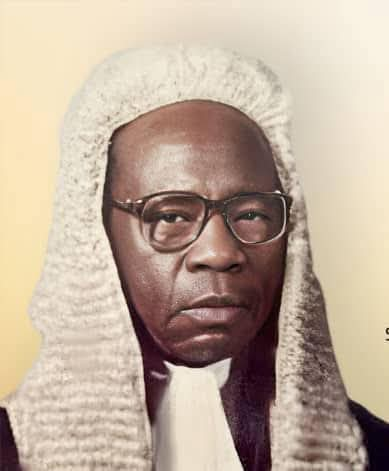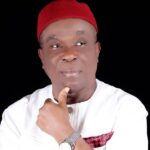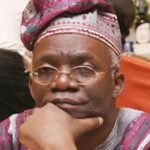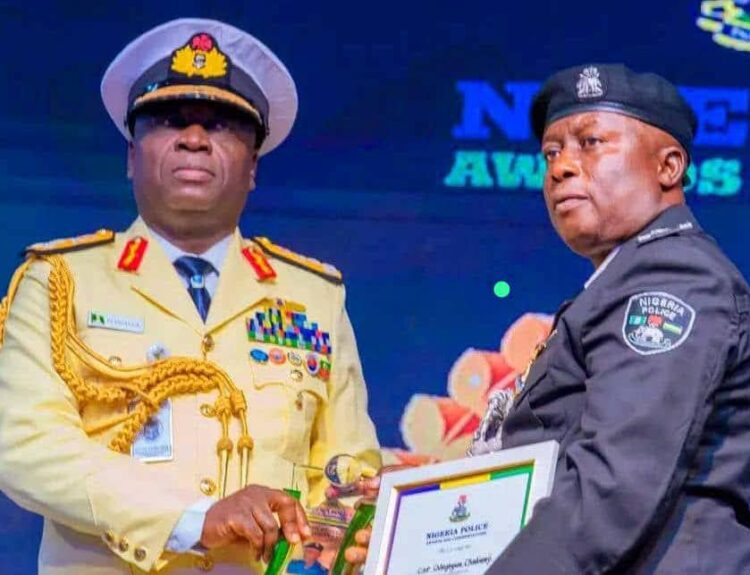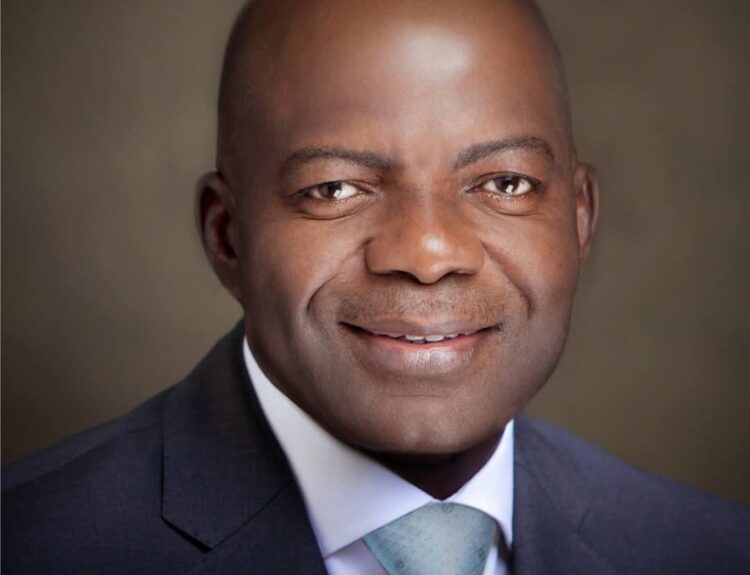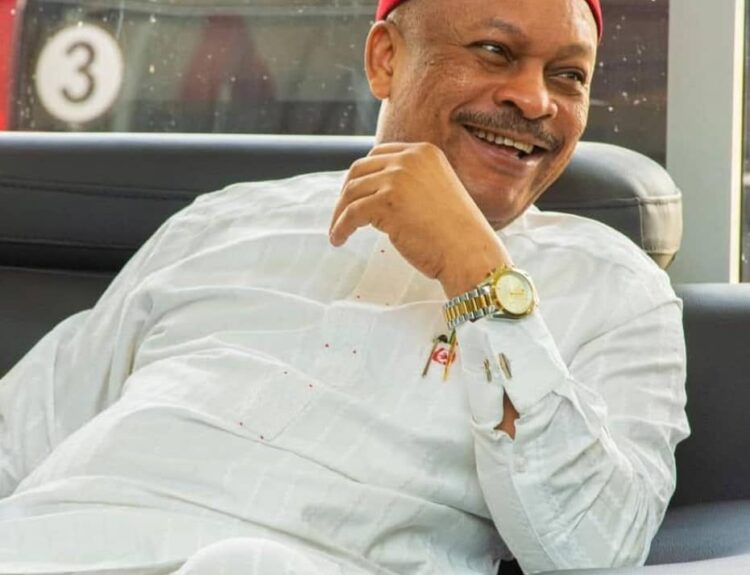The earthly remains of Emmanuel Obioma Ogwuegbu, retired Justice of the Supreme Court of Nigeria, was interred this past weekend in his Amainyi Ihitte Uboma, Imo State hometown. At both the valedictory sessions and funeral mass of this great jurist, nicknamed “Justice Goodheart”, aside the deluge of tributes that adulated this incorruptible and courageous judge, speakers after speakers were worried that the last courageous and upright judge may have been buried. This is very worrisome although on an optimistic note, we insist that there a still many courageous and upright judges and lawyers.
Justice Ogwuegbu was born on 16th March 1933 and he transited on 28th October 2024. Appointed Judge of the High Court of old Imo State in November 1976, elevated Justice of the Court of Appeal from 1987 to 1992 and Justice of the Supreme Court from April 1992 to 16th March 2003. In between, from December 1999 to 2002, he was appointed Justice of the Supreme Court of the Gambia. The late jurist had a superlative outing as a private legal practitioner, Magistrate, High Court Judge, Justice of the Court of Appeal and Justice of the Supreme Court. In his tribute, President Tinubu honoured Justice Ogwuegbu’s “enduring legacy and commended his unwavering commitment to justice, integrity and the rule of law.” Hon Justice Kekere-Ekun, the Chief Justice of Nigeria, proudly emblazoned that Justice Ogwuegbu was “a towering figure in our nation’s landscape. He was an exceptional jurist, a man of integrity, and consummate professional whose tenure on the Bench remains a steering example of dedication to the ideals of justice and fairness. His judgments marked by intellectual depth and sound legal reasoning, continue to inspire generations of legal practitioners and jurists”. On his part, Governor Uzodinma acknowledged that the revered jurist “completed his earthly journey with dignity and integrity.
Prof Odinkalu was both different and critical in his tribute titled “EMMANUEL OBIOMA OGWUEGBU: THE LAST OF A FEW GOOD MEN? Part of what the fiery Odinkalu penned in praise of the late erudite jurist while demanding accountability from serving judges was that “… One night shortly after the 1983 elections, Obioma Ogwuegbu received an unusual night-time visitor at his official residence in Aba. Onyeso Nwachukwu who died in 2022 was a pious man, an Elder in the church, and the state chairman of the ruling National Party of Nigeria (NPN). On this night, the party chairman arrived with his wife, who blagged her way into the house by dropping the fact that she was a high school contemporary of the judge’s wife at the Community Girls Secondary School, Elelenwo, Rivers State. Under the guise of a social visit, the party chairman visited to plead the cause of the beaten NPN governorship candidate, Collins Obi. The election petition was yet to be heard and the panel to hear it was not even announced. But the party wanted to advance the judge onto the panel as its “person.” Obioma Ogwuegbu firmly reprimanded him before ushering him out of the house.
On the grounds of the compound but unknown to the judge, the party chairman had parked a brand-new Range Rover car complete with cellophane frills. As Justice Ogwuegbu ushered him out of the house, he noticed the party chairman walking to slide into another well-appointed sedan. So, he asked who the owner of the new Range Rover was. In response, the party chairman sidled up to the judge to inform him that he was the proud recipient of the four-wheel gift for his end of year.
Obioma Ogwuegbu smiled and pleaded with the party chairman to spare him further hardship. He explained that he had enough problems maintaining his Mercedes Benz on his judicial salary and could not afford the financial exposure of trying to maintain an exponentially more expensive car. He insisted that the party chairman had to go with the car in the same manner that he brought it onto his compound, Obioma Ogwuegbu later begged off election tribunal duty because of this.
With reluctance, Elder Onyeso Nwachukwu drove out in the Range Rover which was manifestly meant to bribe an honest judge. For the remainder of his life, however, he lived in awe of Obioma Ogwuegbu because, he said, the judge belonged to that rare breed who could not be bought.
Honorable Justice Emmanuel Obiomna Ogwuegbu was part of a generation in which judging was a deservedly elevated calling. In return, society honoured people like him with the honorific “My Lord”, an acknowledgement that they were called to a job that is truly divine. Today, the senior-most lawyers publicly twerk to partisan orchestras conducted by people who were in professional diapers when they were already in the Inner Bar and judges are made to believe it is kosher to enjoy political joy-rides and be serenaded with four-wheel bribes by politically exposed persons.”
There will be time to return to the matter of how judicial integrity descended into their current morass and to address what can be done about that. For the moment, it is time to honour the memories of a generation of men and women, epitomised by Emmanuel Obioma Ogwuegbu, who put the ‘honourable” into the appellation, “Honourable Justice”.
Truly, this is not the best time to be a member of the legal profession in Nigeria. The legal profession, meaning Judges (Bench) and Lawyers (Bar) admitted to practice law in Nigeria by the Body of Benchers. Lawyers and Judges are, literally speaking, like Siamese Twins. Discussion of one robs off on the other. Members of the Bench are appointed from the Bar while lawyers remain ministers in the temple of justice. The public image and perception of the legal profession in Nigeria is very low and battered. The legal profession which prides itself as promoters of rule of law and last hope of the common man has, by the transgressions of a few, transmogrified to enablers of injustice, oppressors of the common man and the weakest link in the chain of democracy. This is sad but Nigerian judges can afford to be different. Socrates said “Four things belong to a judge: to listen courteously, to answer wisely, to consider soberly and to decide impartially”. Late Justice Ogwuegbu cannot “be the last of a few good men”. There are still many fearless, courageous, hardworking and impartial judges but the few lazy, corrupt and corruptible few amongst them have bespattered the face of the judiciary with contempt, opprobrium and derision. Likewise, there are still many hardworking, ethically aligned and professionally compliant lawyers from amongst whom can be appointed as judges but the pettifoggers and crooked few have within dented the image of the once noble profession.
Late Justice Ogwuegbu was a good judge. Just like late Justice Ogwuegbu, members of the Bench must strive to be good judges. What makes a good judge? The Rt Hon Lady Rose Colmworth DBE on 16 June 2022 during the Barnard’s Inn Reading answered the query thus –
Following on from that thought, let me close by sharing some advice I give to judges just starting out – and which indeed I regularly give to myself and which I find very helpful in my desire to be a good judge. Bear this in mind. For every case that you preside over, there comes a point a day or so before the hearing when the lawyers involved in the case find out from the listing office that you are going to be the judge hearing their case. They ring up the client and say, we’ve just heard that we have Mrs Justice Rose or Mr Justice X.
Inevitably the client asks: “Is that good or bad? What is she or he like?” If you want to be a good judge, try to think of how you would like the lawyer to respond to that question from the client… and then – in all the different aspects of your conduct in and out of court – try to behave so as to bring that about.
Adieu, Justice Goodheart.
A new normal is possible!
Prof Obiaraeri, N. O.


